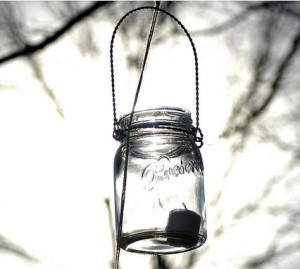Etsy, Regretsy, Protesty

Etsy is a marketplace for artists to sell their crafts and build a little business for themselves, but what happens when those small businesses become big businesses? TIME takes a look (subscription only) at the “handmade wars” occurring on Etsy — the conflict being that there are people who believe that Etsy should be a place to foster small-time artisans, not those who have become successful enough to hire a team of workers to churn out products and make hundreds of thousands of dollars (if not millions) a year. Mariana Schechter, a 31-year-old furniture designer who uses reclaimed wood, was was run off of Etsy once other Etsy members discovered she was outsourcing some of her work and had a team of four carpenters who helped her assemble her furniture:
Within days, angry Etsy members banded together on a website called Protesty to plan a boycott of the site. Six hundred sellers set up a Change.org petition decrying Etsy’s support of mass producers, and Schechter says she was ambushed with hate e-mails and phone calls criticizing her business. Her husband, an attorney, issued a cease-and-desist notice to an angry Etsy follower. It was swiftly posted on Regretsy.
Dickerson, Etsy’s CEO, waded in to announce his support for Schechter. In a statement posted on Etsy, he condemned the “mob mentality” of her critics and framed the situation as an oversight rather than deceit. “Ecologica Malibu is a collective shop, run on Etsy by Mariana with help from a local staff,” an Etsy administrator wrote on the site. “In keeping with Etsy’s rules, that collective should have been disclosed within the shop; this is now corrected.” That only stiffened the dissidents’ resolve: two weeks later, 4,000 sellers agreed to black out their shops for 24 hours in protest of Schechter’s featured shop.
Within weeks, Schechter closed her Etsy shop. Fearing for her safety, she moved her brick-and-mortar store to a different location in Malibu.
I understand why a community of small-time artists would like to stay small and artisanal rather than have mass-producers hanging around the site to steal their thunder, but as a buyer, I would be happy to hear that a once unknown craftsperson whose products I’ve bought and liked found enough success to expand and make more money. One couple profiled in the story has grown from selling a few thousand dollars worth of screen printed items to annual sales of $500,000 on Etsy.
Etsy is also backed by venture capitalists who have invested in Facebook and Twitter, which means the site has already been invaded by the big guys. One day every household in America will own a some chops, and then what?
Photo: maureen lunn
Support The Billfold
The Billfold continues to exist thanks to support from our readers. Help us continue to do our work by making a monthly pledge on Patreon or a one-time-only contribution through PayPal.
Comments